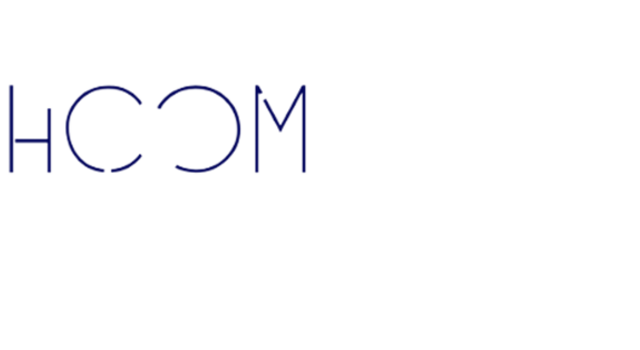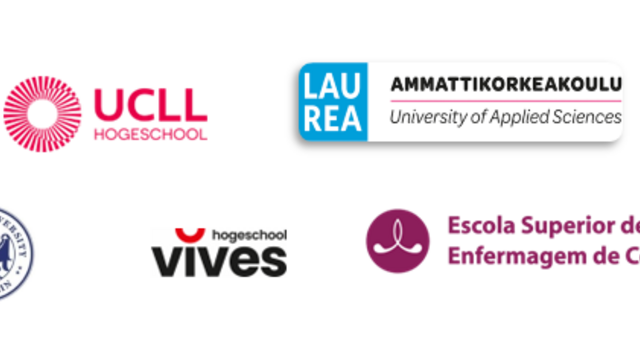
To touch and be touched by Fragility
3rd ETHCOM Multiplier Event (ME3) hosted by UCLL
| 09.15 - 10.00* | Registration, welcome and coffee |
| 10.00 - 10.10 | Introduction - Toon Quaghebeur, Dean Faculty of Healthcare UCLL |
| 10.15 – 10.45 | The ETHCOM project-framework : objectives, methods and results Lies Beunens (UCLL – Coordinator ETHCOM) – Consortium Partners: Tina Vandecasteele (VIVES) - Teija – Kaisa Aholaakko (Laurea) Rogério Rodrigues (EsEnfC) – Béata Dobrowolska (Medical University of Lublin) |
| 10.50 – 11. 30 | Keynote: 'Milk or Lemon?' Philosphical-ethical reflections on fragility, dignity, the good life & the strength of human connection, Prof. dr. Yvonne Denier, KU Leuven & UCLL, Resilient People Stimulans |
| 11.30 – 12.30 | Keynote: Fragility to touch and be touched, Prof. dr. Marlies De Munck (University of Antwerp) |
| 12.30 – 13.30 | Lunch – visit museum – Fragility picture |
*GMT+1 (brussels)
ETHCOM course : Workshops on tools : a practical compass in experiential learning methods
| 13.30 - 14.30 | Round 1 In dialogue with parents of a stillborn child. A care-ethical reflection The workshop provides concrete tools to reflect and speak in a care-ethical (person-oriented) way, about the meaning of loss within the stated case study. The reflection is based on one's own experience of loss and the experience of the patient and/or his context. The goal is to grow as a professional in good care and to achieve shared decision-making. Kristel Liesenborghs by UCLL, University of applied sciences (Belgium) Card Game on Decision making Card game to play from a problem scenario/situation. Each team of players makes a decision on how to resolve the situation. After that, they select a set of cards that support the decision making. At the end, they present the decision made and the reasons for it to the group/class Professor Rogério Rodrigues, Escola Superior de Enfermagem de Coimbra (PT) |
| 14.30-15.30 | Round 2 Case analysis and film making Moral Case Deliberation. Tool for reflecting ethical challenges |
| 15.30 – 16.00 | Fragile closing of the Multiplier Event |
| 16.00 – 17.00 | Drink offered by Ethcom |
The event is free of charge, but it is mandatory to register.
the morning program can also be followed online.
The online link and the program of workshops will be provided a few days in advance.
‘MILK OR LEMON?’ PHILOSOPHICAL-ETHICAL REFLECTIONS ON FRAGILITY, DIGNITY, THE GOOD LIFE & THE STRENGTH OF HUMAN CONNECTION
Prof. dr. Yvonne Denier, KU Leuven & UCLL, Resilient People Stimulans
Ethics is a cornerstone of nursing care, guiding practitioners in navigating the complexities of patient care with moral clarity. Among the various ethical frameworks that inform nursing practice, care ethics has gained prominence for its focus on relationships, responsibility, and the moral significance of care itself. Care ethics is rooted in the contextual and relational dynamics of caregiving. In this contribution, I examine the integration of care ethics into nursing education, highlighting the role of experiential learning in fostering the ability to engage in shifting perspective, a critical aspect of ethical practice in nursing.
Care ethics, with its emphasis on relational interdependence and the responsibilities arising from care relationships, aligns naturally with the core values of nursing. However, the educational approach to care ethics transcends mere theoretical understanding. It requires a commitment to immersive, reflective learning experiences that enable students to shift perspectives and respond ethically within the nuanced contexts of patient care.
In this lecture I will explore the theoretical foundations of care ethics from a fully different angle. With the help of various objects from our ordinary daily lives, I will touch upon essential aspects of experiential learning in nursing education, and offer practical insights into how these aspects can be effectively integrated to enrich ethical nursing practice, which is, after all, a matter of human connection.
'Fragility: to Touch and Be Touched'
Prof. dr. Marlies Demunck, University of Antwerp
At a time when the workload for healthcare providers keeps increasing and healthcare institutions are becoming more and more impersonal, developing an emotional 'husk' seems to be the best solution to prevent moral stress and burnout. As a result, many organizations encourage their employees to strengthen and shield their inner self, for example by exercising or taking yoga or mindfulness classes. The central idea is that a healthy mind in a healthy body is better able to withstand moral stress. But doesn't a husk only give life when it opens up? What if moral suffering is a sign of moral health, and not of a lack thereof? This lecture starts from the belief that the core of our moral well-being lies in our fragility – our ability to open up and be touched – not in shielding ourselves, and that the arts have an important role to play in this.
First, it should be noted that the pressure to avoid moral distress and burnout should not be shifted exclusively to the individual healthcare provider. Moral well-being ought not to be a privilege only for the 'fittest' in the professional rat race. Therefore, institutions should always strive for an approach that acknowledges and solves structural problems at the policy level.
Meanwhile, the individual caregiver can explore another path that does not strive for self-protection but starts from a desire for connection. Since moral resilience does not lie in strengthening our defensive walls, but rather in the ability to be touched, the arts can offer an ideal starting point and training ground for this. From literature to painting, from music to theatre, works of art can literally and figuratively teach us how to be touched. This lecture will therefore present a number of concrete art works to show how, by training an aesthetic attitude, we can not only strengthen the moral dimension of care, but also foster a deeper connection between ourselves and the world.
Erasmus KA2 ETHCOM
KA220-HED Cooperation partnerships in higher education
(Agreement Number: 2021-1-BE02-KA220-HED-000032015)
